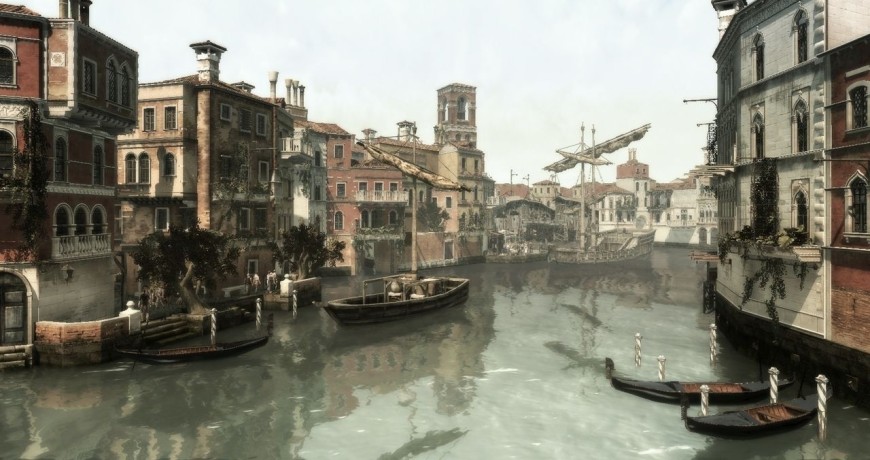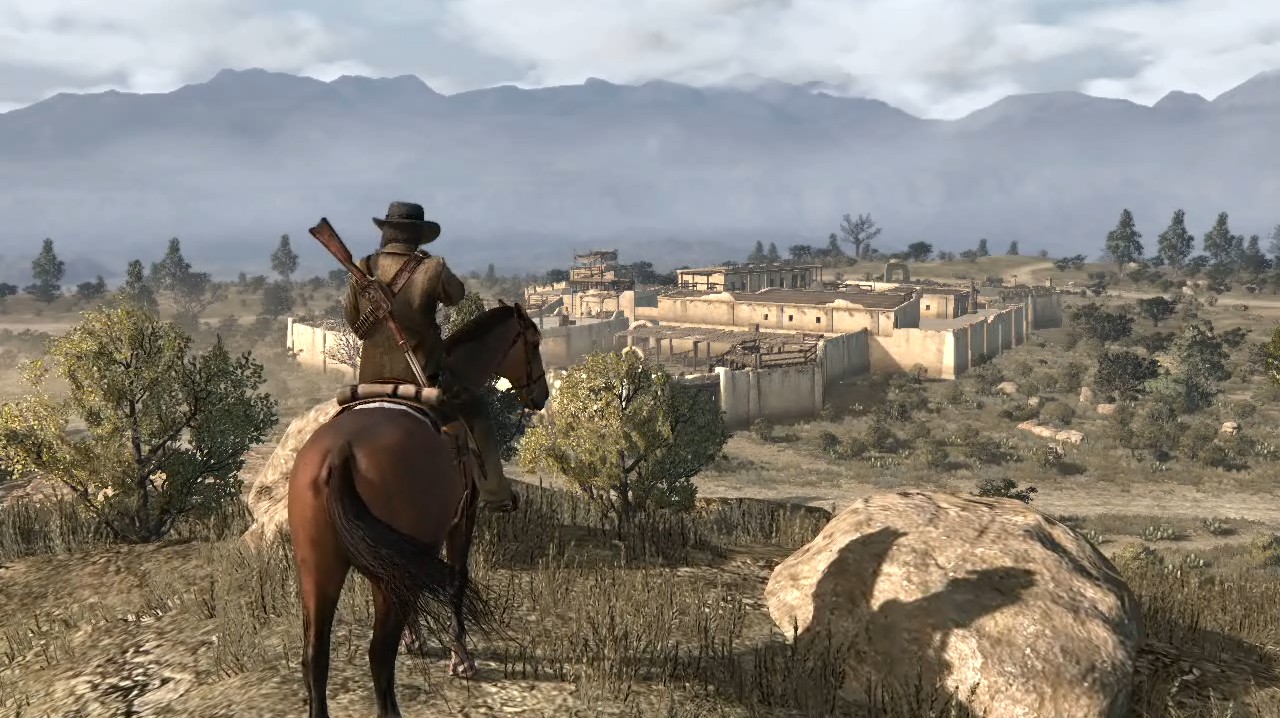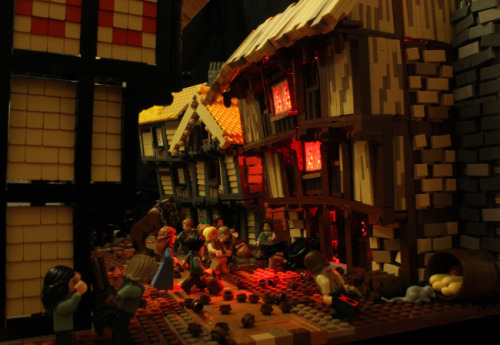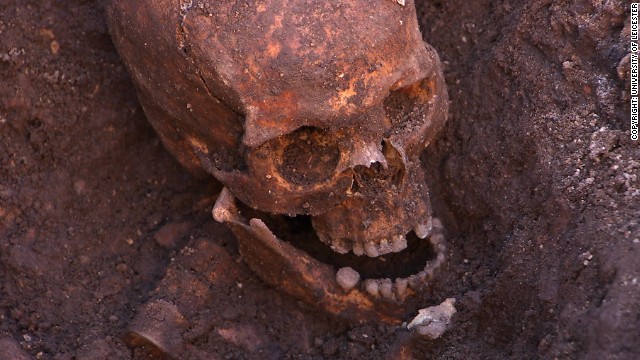Thieves Castle: Chapter
the First
The man’s feet slid in the muck as crossed the open space of the laneway,
the darkness yawning moist and thick around him. He leaned against the corner post panting,
his breath harsh in the silence of the street.
An unsheathed dagger glinted in one hand. The man glanced around, eyes straining at the
darkness.
Ivy Lane stank. The smell was
a mix of urine, dung and the foul rancid stench of offal drifting down from the
butcher’s yards north of Newgate Street.
Then man pushed himself away from the corner and turned hastily down
the lane. The night was heavy and the
darkness near complete, lit only by a handful of window candles and the dim
yellow light of a small lamp hung outside one dark doorway. Although the lane was cobbled, the stones were
greasy with the accrual of filth and the endless tread of daytime
commerce. The man paused, hearing the
faint echo of feet behind him, the sound uncertain.
He cursed to himself and began to move down Ivy Lane with as much
speed as the darkness and the uncertain footing allowed. He held the dagger at length in front of him,
as though to hold the night at a distance.
The sounds seemed closer.
He glanced around. The
laneway was narrow, a typical London thoroughfare, overhung with jetties that
exiled the sky into a narrow strip and made the already oppressive darkness of
the night into a stygian gloom. A flare
of torchlight sent a set of shadows racing away as someone passed the corner he
had vacated. The light sent the man
scurrying away, no longer mindful of the slippery footing. He caught a faint gleam of a bare blade in
the glowing light of the torch.
“Find ‘em lads, winnow him out.” The faint voice sounded amused.
The man cursed again and ran down the street, one hand outstretched,
bumping along the irregular walls of the laneway. Another flicker of light in the distance
ahead of him, coming from Paternoster Row and the distant bulk of St. Pauls.
“Coads.” The man muttered and pressed himself into the wall,
shaking. The men were getting closer.
“Stay still.” The voice was
soft but firm. A dim yellow light
emerged from the doorway to his right, carried by a young woman. Her hair was short and dark. She stepped out and hung the lantern on a
sign bracket above the narrow doorway.
She pointed at the darkened alcove to the left of the door, almost
hidden by the thick cornerbeam of the house.
“Go there.”
The man wiped his face and nodded, sliding into the welcome darkness
of the alcove like a lover’s embrace. He
listened as the sound of footsteps grew more distinct. He could see the red flicker of the torch
against the wall as they drew near, the shadows dancing back and forth with
drunken abandon. He shrank back, feeling
the rough timber frame digging into his spine. He listened.
“Bit late for punk
trade, isn’t it.”
“Codso, you lot out looking for sheep?” the girl said in a tired
voice. “what’s this rag and tag?”
“You seen a man? A blood?”
She laughed. “Likes of them
in Ivy at this time of night? Not
tonight. Any of your ruffler’s in coin?”
“Piss off cunt, we’re busy.”
“Fuck you, you buggering cockless bastards, go find yourselves some
rent-boy’s arse.” The torchlight
flickered and began to move away. The
man hidden in the alcove let out a long sustained breath of relief as the
footsteps faded away. The girl continued
to berate the party’s retreating backs until they disappeared.
“You can come out.”
The man emerged cautiously, his eyes flinching as he scanned the
length of the street.
“That lot’s gone.” The girl
said. She canted her head at the man and
surveyed him up and down with a practiced eye.
“What’d they want you for?”
“No idea love. They came at
us when we left the tavern.” The man
shuddered at the recollection. He had
stood mute and stunned as he watched his two friends beaten into the mud and
only when the steel had gleamed red did his drink-befuddled reflexes send him
careening away as fast as his legs could carry him. He felt his throat choking with bile.
“Here” The dark-haired girl handed him a wineskin. He tilted it back and gulped a mouthful of
thin, acrid wine. As he wiped his mouth,
he looked at the girl again in the lantern light. Her hair was short and dark, barely past her
ears. She wore a long dress with the
bodice bare and loose, the swell of her breasts clearly evident. The stays on the dress were untied, allowing
the top to flare open, giving the man a tantalizing glimpse of a lean length of
untrammeled flesh. The girl tilted her
torso back and the tip of one nipple slid out from underneath the thin fabric.
“Why don’t you stay with me for a time, until your hunters wear
themselves out?” The man felt one hand
brush along the front of his breeches, pressing against the hardening length of
his member. His breath caught. His eyes closed as her grip tightened.
“That may be the wisest choice…” the man breathed. Her hand slid around his waist and she slowly
turned him, her dark eyes locked on his, her mouth open like a wet promise. He slid his hand down between her thighs and
the thin material left little to the imagination. Maybe it was due to the terror of being
hunted through the nighttime paths of London but the girl‘s touch made his
pulse hammer and his desire quicken. She
smiled, a brazen smile of anticipation and lust.
It felt like a thump and a sharp tightness against his right side. He stopped in puzzlement. The girl continued to look at him and gave a
slight half-smile as hot pain coursed through him.
“I.., what..?” The girl
continued to smile. He felt her brace
herself for an instant and then push her right hand against the handle of the
long poniard that protruded from his side.
He staggered, one hand grasping at the girl. He felt his numbing fingers trail over the
hardening nipple of her breast but his lust was overtaken by overwhelming
weakness that made the dark alley swim. A
sick feeling of horror flooded through him and he reached for her. She laughed and easily deflected his hand, tugging
on the handle of the dagger, steering him lurchingly away from her. “You…”
his words were incomplete, lost in a red wave of searing pain that
seemed to swallow his thoughts.
“Over here, come with me.” She crooned in an encouraging voice, one
guiding hand on his back and one on the dagger handle, as though driving some
farm animal to market. He took a
staggered step and then the girl grasped the dagger handle tightly and twisted
it with harsh strength. The man felt a
tugging sensation and his insides turned to liquid, as though he drunk a
skinful of hot spiced wine in one swallow.
He could feel the cold length of the steel perforating his flesh,
ripping into his bowels and belly. His breath
roared in his ears and his eyes filled with tears. The lantern wavered and blurred.
He was on the ground, mouth tasting of blood, fingers grasping at
the thin layer of muck that coated the cobbles.
The torchlight flared again and he stared upwards at the girl’s intent
face. She wore a pleased expression like
she had made some fresh discovery.
“Want me to finish him?” One
of his hunters stood beside the girl, holding the torch and looking down at him
with a bemused expression.
“No, I want to watch him go.
You would spoil my fun Bent.” She
smiled. Bent’s eyes flickered at the
girl with a measured look and then back at the dying man stretched across the
muddy stones of Ivy Lane.
Bent nodded in careful acquiescence. “Can’t have that.” Bent reached down and ripped the blade free
and the man felt a calescent, diffuse sensation spreading through his body, as
though he had pissed himself. His blood
was dark as night in the glow of the torch.
He watched it puddle across the greasy cobbles. “Leave this on him when he’s done.” He handed her a small object. She nodded absently and lowered herself over
the supine man’s groin, settling herself upon him, eyes fixed on his face,
knees on the wet cobbles, unmindful of either dung or bloody rivulets, her
expression almost rapt in the flickering torchlight, watching his eyes as the
man cried in pain and fear and bled to death in the dank confines of Ivy Lane.
---
I hope you've enjoyed the first chapter of
Thieves Castle, which continues the saga of Christopher 'Kit" Tyburn. Excerpts from Book 1,
The Jesuit Letter, can be found
here.
The Tyburn Chronicles are a planned series of books set during the Elizabethan Era between 1575 and 1589.
Currently I am still engaged in agent hunting, but if nothing new has turned up in my quest by early 2014, you should be able to grab The Jesuit Letter & Thieves Castle as independently published e-books in 2014.
Stay tuned for future news and I hope you found the excerpt intriguing and enjoyable!






















